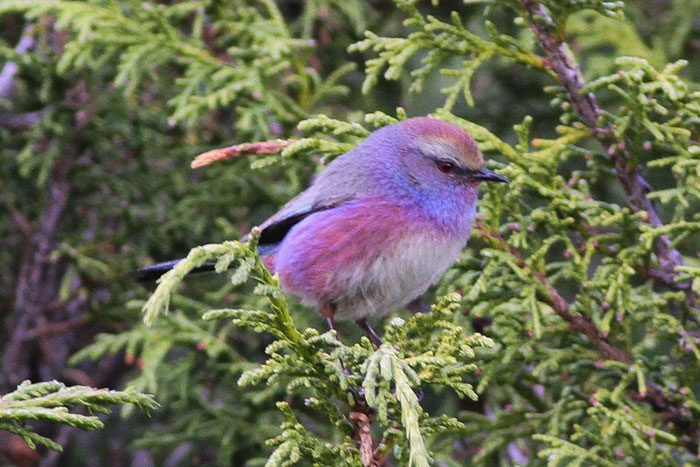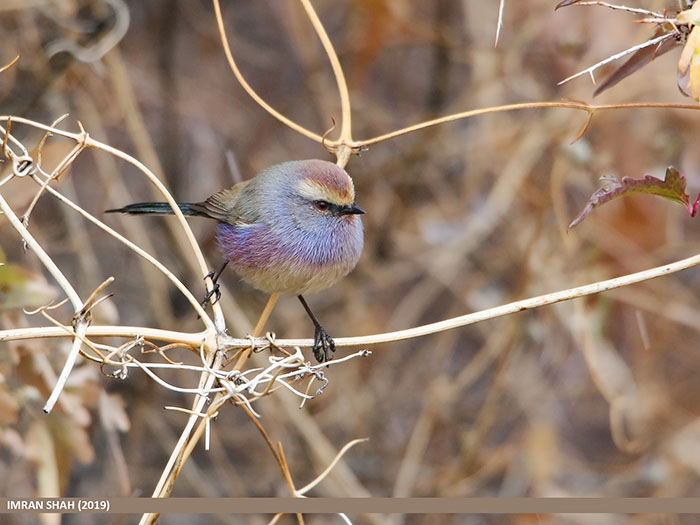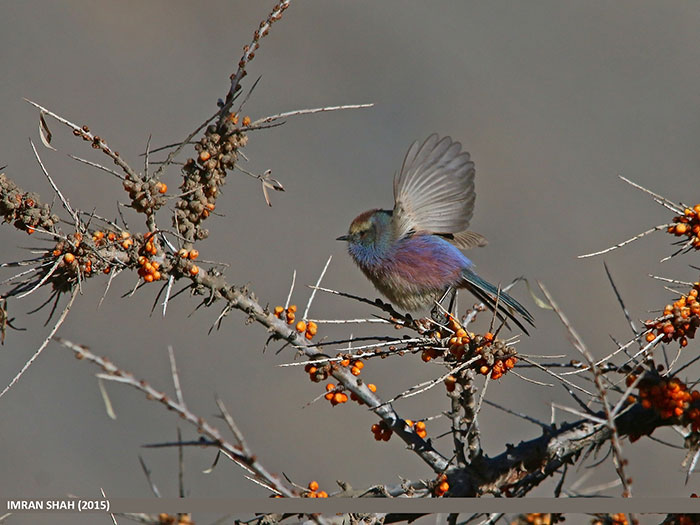Here’s a riddle for you. Who’s cute, colorful, has flashy eyebrows, can sing, and could easily star in a Disney movie? Any ideas? No? Alright, we’ll tell you. The creature we’ve just described is none other than The White-browed Tit-Warbler himself. Still confused? Yes, it might sound silly but it’s actually the name of a bird. And as you hear about him we’re pretty certain you’re gonna love him just as much as we do.
Have you ever seen this rainbow-colored bird before? No? Well, then it’s time for you to meet white-browed tit-warbler!

The White-browed Tit Warbler is a species of bird first described in 1873.

They live in the Himalayas, the Tibetan Plateau, and much of Northwest China and for the most part, hang out in boreal forests. They’re usually seen alone or in small friend groups.

This bird is quite little—about 9 centimeters long to be exact. And it weighs no more than 9 grams. But you don’t have to be big to be remarkable and The White-browed Tit Warbler is here to prove it.

As we mentioned before, he’s super cute. Just look at him. Breathtaking, right? This bird’s got nice white eyebrows, a soft pink belly, a beautiful light brown crown, vibrant feathers, and a tail that lasts for days.

And now let’s talk about the elephant in the room—what’s up with that name? The word “tit” is actually short for “titmouse” which is a mangling of the Old English word “titmase.” And talking about the “white-browed” part of the name—we’ve already discussed his iconic eyebrows.

Another cute thing about these birds is that they are known to be monogamous. It means that they dedicate their lives to the first partner they choose. Besides, both partners seem to take equal responsibility and caretaking duties.

And we have some great news—this little cutie, for now, is safe from extinction! The International Union for Conservation of Nature lists the species under “least concern” on the red list and that’s mostly because these birds have no natural predators.


